|

On eBay Now...
WITHOUT A SCRATCH/ 5th Maine Infantry/ Ensign Wm H Morse Diary/ Civil War/Signed For Sale
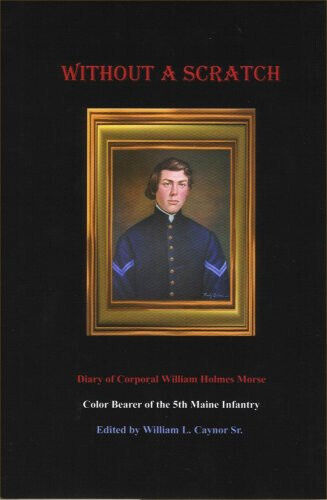
When you click on links to various merchants on this site and make a purchase, this can result in this site earning a commission. Affiliate programs and affiliations include, but are not limited to, the eBay Partner Network.

WITHOUT A SCRATCH/ 5th Maine Infantry/ Ensign Wm H Morse Diary/ Civil War/Signed:
$35.00
WITHOUT A SCRATCH/ 5th Maine Infantry Ensign William H. Morse/ CivilWar/Signed This is a new signed hard-copy the diary belonging toCorporal William Holmes Morse, color bearer of the 5th and later the1st Maine Veteran Volunteer Infantry regiment and their struggle topreserve the union during the Civil War. Morse’s unitwas part of the Sixth Army Corps that participated in most of the pivotalbattles in the eastern theater such as Malvern Hill, Fredericksburg,Chancellorsville, Gettysburg, Wilderness, Rappahannock Station, Winchester, CedarCreek, Petersburg, Spotsylvania, Sailor’s Creek and to the surrender atAppomattox. Five members of the regiment received the Medal of Honor for actions at the Battle of Rappahannock Station. Corporal Morse documented his warexperiences from his enlisted in Lewiston, Maine on December 21, 1861 with the5th Maine regiment to being discharged as a member of the 1st Maine VeteranInfantry Regiment on June 28, 1865; 42 months later. The diary gives anexcellent portrayal of the daily life and combat of a Civil War soldier in the SixthArmy Corps of the Army of the Potomac. Morse’s written expressions of hisexperiences in battle are visionary depictions that allow the reader to see theaction as if being present at the scene. The amazing part of Morse’s story is thathe was the color bearer, putting him in the front line of fire and yet thebullets and shells rained all-around him through-out the war without harm. Hisstory is a masterpiece of Civil War history as Morse wrote in his diary almostdaily, giving little room for the soldier’s experience to be neglected. Exceptsfrom the Book June 27, 1862, Battle of Gaines Mill It is very hot today. About2:30 a.m. we were aroused by a furious volley of musketry on our left, so weimmediately fell in, but soon all was quite again. At daylight we had orders tofall in under light marching orders. In a course of an hour or two we saw thatwe were in for a mess. Our division of Slocum’s, formerly Franklin’s, was on toreinforce Porter’s. While reconnoitering we were smartly shelled and salutedwith solid shot and for the first time we were obliged to skedaddle. Theyovershot us however and no one was injured. All morning a heavy battle ragedacross the river on our right and our forces were driven back fromMechanicsville to Gaines Hill and from there to Gaines Mill. The new bridgeabout a mile above has been blown up. About 2 p.m. we started under lightmarching orders for Woodbury’s bridge expecting we were to guard it or destroyit, but after meeting large numbers of wounded and finding we were going directlyacross the bridge, we began to mistrust what was coming, that we were in for arow. We marched at a quick pace directly to the battlefield and took positionin the rear of some batteries as a support, the solid shot and shell strikingon each side of our column and shrieking like demons over our heads, and also agenerous sprinkling of bullets, only one man was hit and he was promptlycarried off the field. After lying in a low place about an hour listening tothe incessant roar and watching the tide of battle we were ordered forward. Atthis time there was a lull in the roar of musketry and the cannons appeared tohave stopped to get their breath. We marched up to relieve the brigade ofregulars who had been engaging the enemy and who had just lost a battery. Theywere rushing away from the scene of carnage carrying with them their dead anddying. Many of their wounded were dragging themselves off the field, some ofthem covered with smoke and blood, though full of “real grit,” and would look up at us with a sorrowful smile and say“ give it to them boys, don’t flinch.” Poor fellows! They had done well, butwere obliged to leave on account of an overwhelming force. We took our positionbetween two old negro huts with a rail fence about ten rods in front of us andanother five or six rods in our rear. Beyond the rail fence in front of us wasa descending field and beyond that the woods. The width of the field wasperhaps a long rifle shot. As soon as we got our position we were ordered tolie down, when the most furious hail of lead passed over and among us I everwish to see or hear. One of the boys said at the time, “Hell! Boys I can’t getthe point of my bayonet between the bullets.” Perhaps we didn’t hug motherearth then, and then again we did. The lead eased up a little and we receivedan order to “load and fire at will and not waste our ammunition.” Our batterieshad opened anew on both sides of us and the infernal, yet to us, mostacceptable screaming of shell from them and tearing of iron from the rebelbatteries, which was in many instances too close to be comfortable, made averitable hell upon earth. If anyone could have been in a safe place and lookedon at that time they would have doubted that there had ever been such a sayingas “Peace on earth, good will toward men.” At the expiration of the first hour,our regiment was left almost without officers. Our colonel had about a pound offlesh torn from his arm by a shell. Our lieutenant colonel was shot through thehead by a bullet. Our major was sick in the hospital, and our first lieutenant,who was in command of our company, was shot three times and we suppose he isnow in the hands of the rebels. Private Dan Harvey, the third man on my rightwas shot through the head. We having orders to fall back took our stationbehind the rail fence that was in our rear and the rebels advanced upon us whenwe in turn advanced upon them with bullets not bayonets for we had but a fewofficers and were fighting almost on our own hook, and gained the cover of theirfence and some trees in the vicinity. Here we had a fair sight of the rebelsand I was astonished that I could with so little compunction at the time, letslip a death messenger at these poor victims. The rebels were from 10 to 80yards from us, but many shots were exchanged at a much less distance than that.We were in the fight I think about 2 ½ hours and when the last of our brigadeleft the field, being relieved by another who acted as picket at night, therebels had fallen back into the edge of the woods and the firing ceased on allsides. Should it happen that I never return it may be some satisfaction to myfriends to know that of 49 men that composed my company all but one had leftthe battlefield before I came away, that one was Sergeant J.B. Bailey, we tenttogether and we stuck by each other through the whole fight. A bullet took somehair off my head just over my right ear and another made a hole in my pants legis all I have to show for being in the thickest of the fight. There were aboutone hundred killed, wounded and missing from our regiment. May 10, 1864, Battle of SpotsylvaniaCourthouse About 4 o\'clock in theafternoon we were ordered to fall in without our knapsacks or haversacks, andwe moved to the left and front and soon found we were to charge the enemiesline of breastworks with abatis in front. We were in the edge of a wood ofscattering pines with an open field in front of us. We lie closely to theground waiting for orders while the rebels were sending in scattering shots, andan unusual proportion of them took effect. Colonel Upton, who commanded ourbrigade, now addressed us, showing us how the works lay and giving us all theparticulars and endeavored to encourage us by telling us that a division was tocharge their flanking works and that we were to have a heavy support at ourrear, neither of which we could discover and both of which statements proved tobe incorrect. His remarks ended with “Forward, 5th Maine, and Godhelp you”, and the last sentence had an ominous ring to my ears! On we went ata double-quick, receiving a terrible punishment from the rebels on our left,who had a line of breastworks there. I had the flag [for only one was taken inby our regiment] and was slightly in advance of the line, the left of our linecrowded hard on our center for reason of the flanking fire. The rebels behindthe breastworks at the left, having nothing to trouble them, could rake us attheir pleasure. We forced our way through the line of abatis and by the time wereached the breastworks our regiment had obliqued more than half its length tothe right. The rebel line of breastworks on our left ran nearly at right angleswith the works that we charged in our front. Just to the right of where thecolors passed through the rebel line was a battery of two pieces. Here therewas a depression in the works and the rifle pits did not extend along here, butwere continued beyond the battery. As I passed through here withthe flag I saw a full line of Johnnie’s lying there and I thought “the flag issurely gone now and I’ll soon see Richmond.\" But at the same time our boysbegan firing into them and yelling, \"Get to the rear you____, get to therear.\" And it was an anxious moment to me to know which \"rear\"they would get to, their own or ours, but their rifles were mostly empty andthey knew ours were loaded, and that makes a vast difference when it comes to a“pinch”, so they most beautifully leaped their works and went to our rear wherethey were soon taken care of. But the rebel line on the flank, not being ableto readily distinguish through the smoke, thought it was the “yanks” beingdriven back, so they poured the lead into their own men as fast as they couldload and fire. During the conflict at the battery, Corporal Thurlow shot onegunner and ran his bayonet through another when the captain of the battery shotThurlow through the head with his pistol. A part of the rebels flanking linehad gradually withdrawn into the woods and it appeared that after getting outof sight, they doubled quicked around to our front [their rear] of the battery,where they concentrated with those who had fallen back, charged and retook theguns and drove our line back at that point. About this time an order camefrom Colonel Edwards for the colors to report to him at the battery, but beforeI could get there the rebels had retaken the battery and he with a portion ofthe line were “skedaddling” to the rear where I soon after joined them. I wasthe only man left in the 5th Maine color guard that was not wounded.I mean of those who were in the battle, as Croswell remained in rear with stateflag. The color bearer, Morris Bumpus, was shot through both ankles and in theleft side before he reached the abatis and subsequently died of his wounds.Croswell was color sergeant and before the charge he went to Colonel Edwardsand got permission to leave “one flag” in camp at our breastworks, so Croswellturned his flag over to Morris Bumpus who usually carried the state flag orbanner and stopped in camp himself with the banner. As the rebels were on bothflanks of our regiment, of course the rest of them soon had to fall back and itwas a small portion of our regiment that returned unwounded to our breastworkswhere we had left our haversacks, etc. I do not know how the rest of ourbrigade fared, or whether there were any of our troops in connection with themon the right, I do not know. The “lay of the land” was such that I could seebut a short distance to our right. We subsequently found that this charge costour regiment 75% in killed, wounded and missing, three men out of every four.And most of those who fell were wounded in the left side. Twelve days later Iwas reduced to the ranks as a “supernumerary”. A short time before we movedout to make the charge, a young foreigner who spoke English quite plainly, cameinto our regiment and explained why he was absent from his command. He said hehad just returned to the line and had not been able to find his regiment, andas an engagement was expected he desired to remain and go into action with usand on his departure receive a certificate to show his officers that he had notbeen “shirking his duty”. He was taken to the colonel, who told him that if hewent into action and did his duty as a good soldier, he should receive acertificate to that effect. After we had made the charge,and while lying at the breastworks in the thick of the fight, I found thislittle fellow at my elbow praying to the “Good Lordy” with great earnestnessand begging for a word of encouragement from the man on either right or left,with tears running down his cheeks, but fighting with the greatest energy. Hewould brush away the tears, cover his man and “bang her off”, with a\"Dear, Good Lordy, do be on our side.\" chuck in another cartridge,begging someone to assure him that the “Dear Good Lordy” would not let anybullet hit him. On receiving the order from the colonel to bring the flag, Ileft him praying and chucking in the bullets. He may have been too scared torun, but he wasn’t so scared, but what he could fight. As he never afterreported to our regiment, I suppose a rebel bullet found him, but if there isany virtue in doing one’s duty under “trying circumstances”, it seems to me heought to have escaped. September 19, 1864, Battle of Winchester It rained in the night, so wehave wet tents to carry. We turned out at midnight and moved a few rods andafter waiting two hours we moved up the valley. We crossed a creek aboutsunrise, where there was fighting ahead. We passed our cavalry that had beenengaged and among them were dying men and horses. We marched about one and ahalf miles and formed on the left of the line of battle. The rebels were givinga generous supply of shell and canister and several of our boys were woundedhere. Immediately we threw up breastworks of rails and laid here in a secondline of battle for two hours or more and then we moved forward into a ravinewhere we laid under a heavy fire. Our skirmishers soon charged on the rebelskirmish line, driving them back and both our lines of battle rushed forward ata double-quick, driving the rebel lines ½ or ¾ of a mile to a ridge at the edgeof a narrow belt of wood. Here we threw up a breastwork of rails and laid forsome three hours, watching the battle, I saw our cavalry charge take sixtyrebels. We are now in the first lineof battle. General Jordan came riding down the line with news of our success.We cheered him and dashed forward through canister and shell. We had passed abad place, a ravine which widened into a wide plain and the rebels had abattery throwing grape and canister on our left and further up the ravinebatteries are throwing shell lengthwise into our column. The 121stNew York, which was on our right, broke under the shower of canister, but ourregiment being partially covered by the ridge, stood fast and they soon formedagain and we moved on at double-quick under a terrible fire. A good many of ourboys were wounded, Cyrennus Stevens among them, by a ball through his arm.General Russell, of the 1st division, was killed by a shell andGeneral Upton was wounded. The rebels fell back in the greatest confusion, thelength of the lines. At dark we formed our lines at the heights nearWinchester. We have had a fair, “open field fight” and licked them, taking manyprisoners. I exchanged my musket for a better one. October 19, 1864, Battle of Cedar Creek We were awaked beforedaylight with cannonading and musketry on our left. We soon heard that therebels had flanked the 19th Corps and driven them from theirbreastworks. We fell in and started at a double-quick to their support. The 8thand part of the 19th Corps had fallen back in confusion and the 6thtook the front. After desperate fighting we were forced back from time to time,sometimes rallying, driving back the rebels and retaking lost ground. Justbefore we received the first fire, our brigade had commenced building abreastwork on top of a hill and right through a burying ground belonging to theCity of Middletown (3/4 mile distant). The rebels were advancing in a line ofbattle to within a few yards of us and we fell back, but rallied and drove themback. We then received a terrible shelling for fifteen or twenty minutes andfell back again. Our Brigadier General offerwell was carried off, mortally wounded.Our corps lost six pieces of artillery. We built temporary breastworks and layhere till 3 p.m., when the whole line charged in “echelon” with our brigadeleading. We were driven back in confusion, and the rebels did not leave theirstone wall. Sheridan asked us rather profanely where we were going. We soon sawthe right of our line driving the rebels before them and we again went forwardand our division cut their army and drove a large portion to the left, ourcavalry pursuing them to Front Royal. During the row today I felt asmart tap on the side of my neck, which, at the time, I supposed to be a spentball that had glanced and struck me without doing any damage, but tonight whenI unrolled my blanket that had been strapped on the top of my knapsack all day,I found that a bullet had passed entirely through the roll close to my neck,and punched my blanket full of holes. Out of curiosity I counted them and foundforty holes. I would rather have them in my blanket than in my skin. January1, 1865 It was very cold and cleartoday, and the ground was frozen. I received a new dairy, papers and letterfrom my dear wife. In reviewing the past year I see much to be thankful for. Wehave passed through many and desperate encounters with the enemy and witnessedsuch scenes as I hope never again to behold. A cruel year, made up of horrors,suffering and mourning. During the year there havefallen by my side in the color guard alone, three killed and four wounded. Inone instant (May 10th), every man of color guard but myself andCroswell was killed or wounded, and though I planted the flag on the enemy\'sbreastworks and afterwards brought it safely off the field, I received not evena scratch. Once in the battle of May 12th, while rallying in thehottest of the fight, I had both the state and national flags in my hands atthe same time and came off unharmed. The boys say “You are in dangerous place,I would not be there” the chaplain says to the color guard “You are the onesthey fire at and by and by they will pick you off”. But the “great general” ofevents has favored me thus far and may he continue to do so. I have workedpretty busily for the first Sabbath of the year; I have put stops around thedoor, put up a mantel piece and some casings and driven pins to hang ourequipments, etc. on. We had bayonet exercise anddress parade at which the chaplain made remarks and offered prayer. Civil War News book review stated “thoseinterested in Maine unit history and the common soldier of the Sixth Army Corpswould enjoy this volume.” This is a 362 page, hardback, 1stEdition, signed by the editor, which was published by the well-renownedBroadfoot Publishing of North Carolina. There were few copies of this bookpublished, making the information very valuable and extremely rare. Thanksfor looking and good luck offerding.

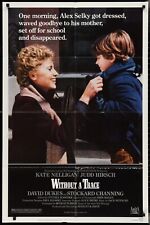
Without a Trace RARE Original 1983 Kate Nelligan 1 SHEET MOVIE POSTER 27 x 41 $23.80
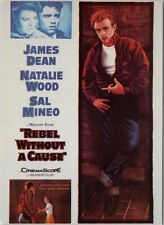
REBEL WITHOUT A CAUSE 4"x6" Movie Poster Art Postcard / James Dean *Modern Print $4.90

32' FOOT SNOW FREEZE MISER THE YEAR WITHOUT A SANTA CLAUS CUSTOM MADE NEW $2695.99
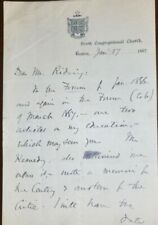
EDWARD EVERETT HALE 2-page 1887 Letter Author of "The Man Without A Country" $70.00

The Girl Without a Face, Vol 1 (The Girl Without a Face, 1) - Paperback - GOOD $5.37
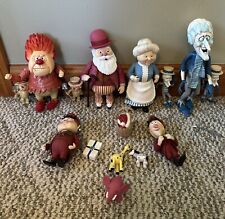
Year Without A Santa Claus Figures $225.00
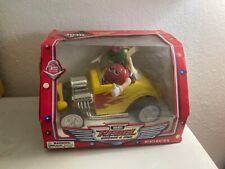
M&M's REBEL WITHOUT A CLUE YELLOW HOT ROD CAR CANDY DISPENSER W/ BOX $15.99

Geeki Tikis Beeline Creative The Year Without A Santa Claus Heat Miser Mug New $49.99
|